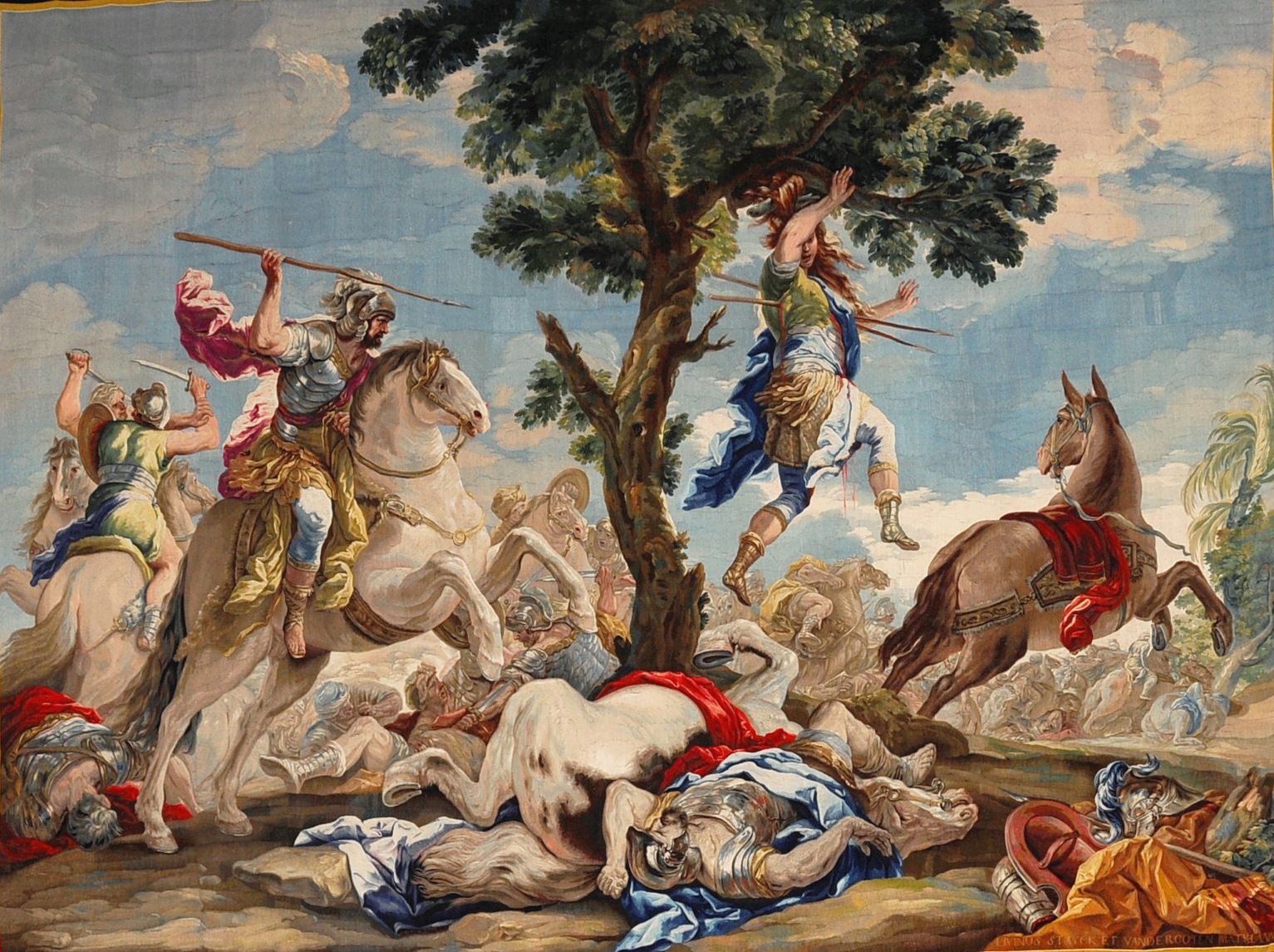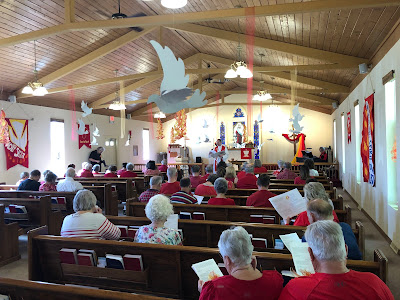promises don't pay cash at the bank
If they did I'm bidding your word
One of my first friends in college was an Asian-American. Once, one way or another, we got to talking about World War Two. At one point in the conversation, he mentioned how I hadn't said anything about the internment camps…
To be honest, I had never heard anything about these terrible places, about that terrible part of our history, until then. It was humbling to learn about that part of our history from him.
It was then that I realized, history is never neutral. History is the story we tell about ourselves. History is the narrative we tell of who we are and what we stand for. And history, as the old saying goes, is written by the victors.
When we decide how we’re going to tell our history, we prefer our story to be black and white, we want our villains to be evil and our heroes to be upright; even though life is rarely so cut and dried…
For those of you who prefer your history without any ambiguity, then; today probably isn’t for you. In fact, and I hate to say this, but our Holy Book probably isn’t for you either.
Today we hear about the fate of young Absalom; David’s son.
All our little section includes, though, is his death, how he got stuck midair while he made his retreat. All our little section includes is David’s grief at the news, how he mourned when he heard about his army’s victory.
To really understand what is going on here, though, you have to go back a little further; hear more of this history.
Absalom had raised a coup against his father, that’s why they’re warring. To really understand why Absalom would do such a thing, though, you have to go even further into the history.
David’s first-born son Amnon, was Absalom’s half-brother. Amnon raped Absalom’s sister, Tamar. Which we must say unequivocally, is a terrible thing. David was upset about Amnon’s act, but he couldn’t bring himself to actually punish his first-born son. Finally, Absalom took matters into his own hands, and avenged Tamar. He murdered Amnon.
To really understand this family dysfunction, though, you have to go back even further into the history. To last week and the week before; to David, Bathsheba and Uriah. To the scene where the prophet Nathan confronted the king after he arranged Uriah’s death to get away with taking Bathsheba.
This moment of Absalom’s death is just a playing out of the consequences Nathan spelled out when he confronted the king. In fact, to really understand David’s grief, you have to keep Nathan’s confrontation in mind. Not only is David grieving the loss of a son, he’s haunted by past sins…
All that sordid history, by the way, is in the Bible. I’m not adding or embellishing. In fact, I’m cutting out and cleaning up. It’s all there.
While we prefer our history clearcut and simple; the history of the faith is much more muddy, it’s much more difficult, it’s much more honest.
This moment is part of a history from a nation that is caught by all its history; from a king that is stuck with his past, from a son that is entangled with his ancestry…
Our little section narrates that one particular moment.
In fact, to really understand that moment you have to know the history. David’s Army was smaller but more experienced. The battle happens in the forrest because they are trying to gain an advantage, the pushed the battle into the forrest intentionally.
In the heat of this battle, Absalom happens to run into some of David’s soldiers. He tries to make an escape, but gets caught. His mule goes out from under him, and he’s left hanging there, between heaven and earth.
Trapped, he’s helpless; he comes to his end…
And that, Absalom’s fate, is exactly why we avoid the ambiguity of our own past.
It’s when Absalom finds himself hopelessly stuck between all the forces of his life, that he is most helpless, that he can no longer survive.
Young Absalom hangs there, between heaven and earth. It’s a moment full of symbolism and deep pathos too.
We flee from the ambiguity of life, the complexities of our own histories; because, deep down, we know we are helpless to the indiscretions of our own past, we are helpless to our own histories. Just ask any medical professional if you don’t believe me…
We don’t want to end up like Absalom, stuck, hanging there helplessly.
That’s why we sanitize our history, we avoid the difficult parts.
Although, as another adage goes, “those who fail to learn from their past are doomed to repeat it.” And, while it nearly goes without saying, this history of a father and son has been, and is being, repeated far too frequently…
What’s truly remarkable about this history, though, what’s really intersting about it is that these people, that the history in our own Holy Book (which is subject to much accusation), is so candid. This isn’t interesting as historical fact, this is interesting as a promise.
This book the Church gathers around and publicly reads from week after week, doesn’t shy away from telling about the terrible indiscretion of a king, his pathetic inability to reprove his first-born of a deplorable sin, or the uprising from his own flesh and blood!
How is it that this people, the tradition of the church, has avoided the temptation to clean up our own history? How have timid folks like us, had the courage to tell such a story, and then claim it as our own?
You might be tempted to answer by saying this history is one born from the experience of life. We all know, like it or not, that life will push us to those ambiguous places that end up doing us in. It’d be easy to assume the people telling this history simply can’t bring themselves to put off this fact of life.
And although that isn’t wrong, it isn’t right either.
Perhaps you might argue that this history is one of a people following God, and a life following God will lead straight into these difficult places. While that may well be closer to the truth; as an explanation, it still falls short…
If you really want to explain how a book like the Bible manages to be more honest about our history than we are, you have to take the Bible on it own terms. The thing about the Bible is that, first and foremost, it is not a story about us.
The Bible, before it is anything else, is a history of God. The Bible isn’t about our history, it’s about God. The Bible is honest about us, because the Bible is at every moment, telling a far more interesting story; the story of God’s fidelity.
What the writers of the Bible know, and we so often forget, is that God can get to work in these muddy histories of our’s, in these places we find ourselves trapped, and make a future yet.
We’re so tempted to forget this because we all believe this lie, that if our history is just pure enough, we’ll find our way into paradise. We think our history can save us.
The thing, though, is that it can’t, we can’t! Our histories aren’t flawless. Our history is like David’s, full of curses that we can’t get free from.
The Bible, however, already knows all this.
The People of the Book have already experienced for themselves that their history can’t save them; that their history is more of a liability than anything else. The People of Faith have found for themselves, that what can actually bring about salvation, is God. That’s the story that’s being told throughout the entire Bible.
God can bring salvation from a terrible history like the one we read today.
That’s Good News, isn’t it?
After all, each of us have muddy histories. We all have parts of our past we’d rather not remember. We all have memories that haunt us. We all have relationships in our lives that are strained. We all have moments in our lives where all we can do was pick up the pieces of our shattered hopes and broken hearts, don’t we?
It’s hard to trust that our lives or histories can be redeemed from something like that. It feels like we’re doomed to those places we’ve gotten ourselves stuck. We can’t imagine how our lives can ever be put back together again.
So we pretend, we rewrite our histories, we try to believe our own lies.
What the witness of scripture attests to, though, is not only that God can redeem us and our history too; but that God will make it happen; no matter how awful our history is.
God will do this, not by granting us a perfect past; but by coming to those places, and from right there getting to work.
We all know what it’s like to be David; haunted by our past. We all know what it’s like to be Absalom too; caught, hanging helplessly.
What today’s Scripture proclaims is that God can handle our past, that God can come to those places we’ve become trapped; and bring about salvation. What today’s scripture promises is that none of you have a history so shameful that God cannot redeem it.



Comments
Post a Comment